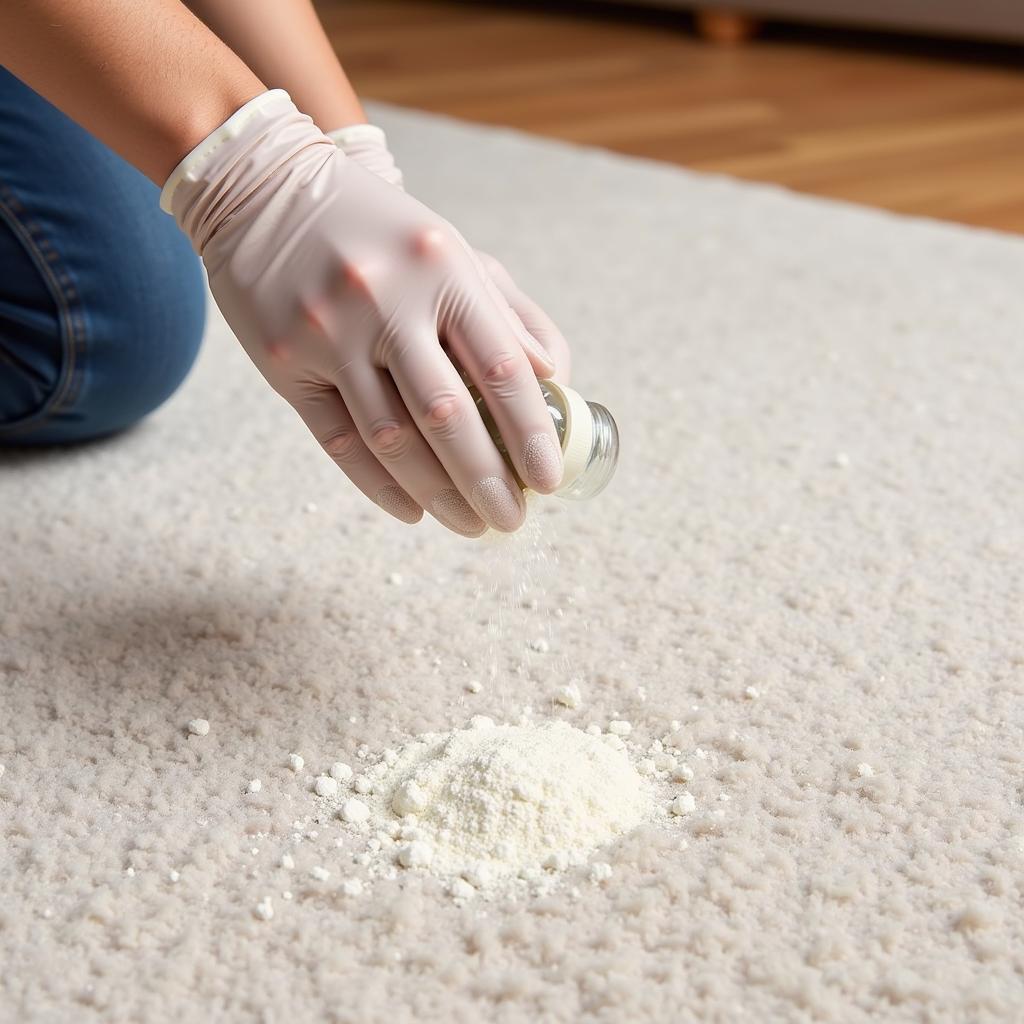Dealing with fleas on your beloved canine companion can be a frustrating experience. While commercial flea treatments are available, many pet owners are turning to natural home remedies as a gentler and potentially safer alternative. If you’re seeking effective ways to combat fleas without resorting to harsh chemicals, this comprehensive guide explores various home remedies for dog fleas that can provide relief and keep those pesky parasites at bay.
Understanding the Flea Lifecycle: Why Home Remedies Matter
Before delving into specific remedies, it’s essential to understand the flea lifecycle. Fleas undergo four stages: egg, larva, pupa, and adult. Adult fleas are the ones you see on your dog, but the other stages lurk in your home and yard. This is why tackling fleas requires a multi-pronged approach that addresses both your pet and the environment. Home remedies, with their typically natural ingredients, offer a less toxic way to manage fleas in all their life stages.
 Dog Scratching Fleas
Dog Scratching Fleas
Effective Home Remedies for Dog Fleas: Natural Solutions
1. Apple Cider Vinegar: A Versatile Flea Repellent
Apple cider vinegar (ACV) is a pantry staple that doubles as a natural flea repellent. Its acidity creates an environment that fleas find unappealing. You can incorporate ACV into your dog’s routine in two ways:
- ACV Spray: Mix equal parts water and ACV in a spray bottle. Avoid the eyes and nose when spraying your dog’s coat.
- ACV Rinse: Add a cup of ACV to your dog’s bathwater after shampooing.
2. Diatomaceous Earth (DE): A Natural Insecticide
This powdery substance, made from fossilized diatoms, works mechanically to dehydrate and kill fleas. It’s important to use food-grade DE, which is safe for pets. Sprinkle it on your dog’s bedding, carpets, and furniture, but avoid your dog inhaling the dust.
 Applying Diatomaceous Earth
Applying Diatomaceous Earth
3. Lemon Juice Spray: Fresh Scent, Flea Repelling Power
Lemons contain citric acid, a natural flea repellent. Create a lemon spray by slicing a lemon, adding it to boiling water, and letting it steep overnight. Strain the mixture and spray it onto your dog’s coat, avoiding the eye area.
4. Essential Oil Sprays: Powerful Aromatherapy for Flea Control
Certain essential oils, such as lavender, tea tree, citronella, and peppermint, possess flea-repelling properties. However, it’s crucial to dilute essential oils properly before using them on dogs, as they can be toxic in high concentrations. Mix a few drops of essential oil with water in a spray bottle and lightly mist your dog’s coat.
5. Regular Grooming: A Key to Flea Management
Brushing your dog’s coat regularly helps remove adult fleas and flea dirt. Use a flea comb, which has fine teeth that can trap fleas, and dip it in soapy water to kill any fleas you collect.
Additional Tips for Flea Control
- Wash Bedding Frequently: Fleas lay eggs in bedding, so wash your dog’s bedding and yours in hot water weekly.
- Vacuum Regularly: Vacuum carpets, rugs, and furniture frequently to remove fleas in various life stages.
- Treat the Yard: Keep your yard mowed and free of debris where fleas can hide. You can use nematodes, which are beneficial insects that prey on fleas, in your yard.
When to Consult a Veterinarian
While home remedies can be effective for mild flea infestations, it’s crucial to consult your veterinarian if:
- Your dog is allergic to fleas (flea allergy dermatitis)
- The infestation is severe
- Home remedies haven’t worked
Your veterinarian can recommend the best course of action, which may include prescription flea medication.
Conclusion
Battling fleas doesn’t always require harsh chemicals. By incorporating natural home remedies into your flea-fighting arsenal, you can provide your dog with relief from these pesky parasites while minimizing exposure to potentially harmful substances. Remember that consistency is key, and a multi-faceted approach that addresses both your pet and the environment will yield the best results in keeping your furry friend flea-free.